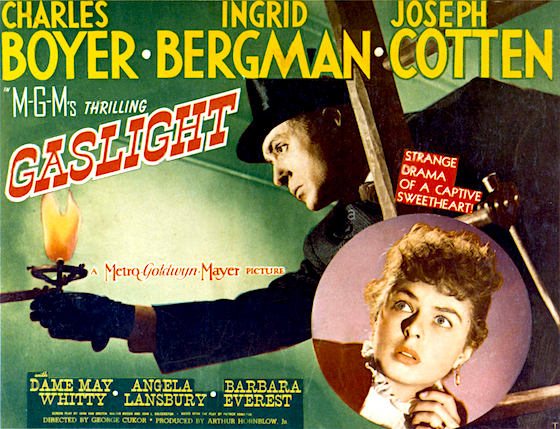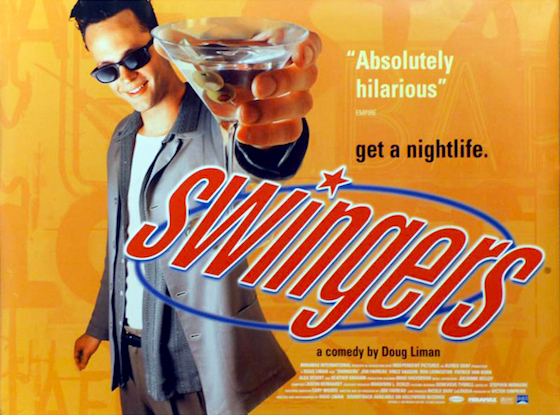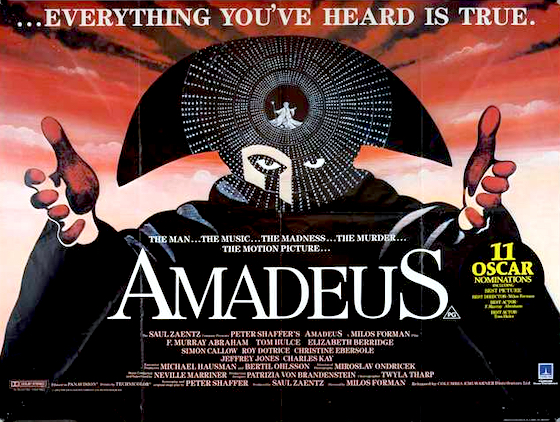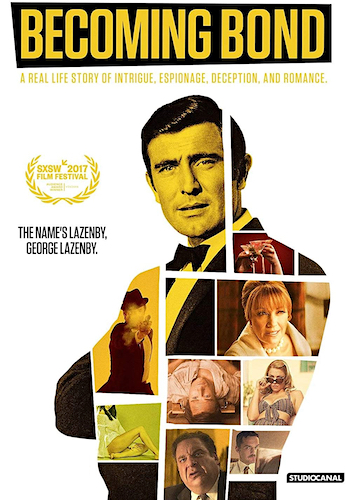When I started my 100-Week Roundup project, I thought I’d be posting a lot of unedited notes and/or summary paragraphs skirting across multiple films (like I did in my FilmBath shorts roundup, for example). Instead, I’ve mostly still been writing full, albeit short, reviews. Well, that continues here, although these reviews often stop dead rather than being fully-formed pieces.
Today’s roundup contains the remainder of my unreviewed films from June 2018, with one exception: A Thousand and One Nights, the first film in the Animerama trilogy, which I intend to review along with its two brethren. I watched the second of those in 2019 and the third just this month, so that’ll come up in due course.
As for what’s still here, if these weren’t linked by the theme of when I watched them, maybe I’d’ve bundled them together for having the same star rating. They are…
(2008)
John Patrick Shanley | 104 mins | download (HD) | 1.85:1 | USA / English | 15 / PG-13

It’s funny how time can change perspective. For instance: Doubt is a drama starring three widely acclaimed powerhouse actors, Meryl Streep, Philip Seymour Hoffman, and Amy Adams… except Adams doesn’t get above-the-title billing, which, yeah, is a bit of an inside technicality for people who are aware of these kind of things, but does remind you that this came out just a year after Enchanted helped propel her to mainstream awareness. But at least she makes the poster, unlike Viola Davis.
All four stars earnt Oscar nominations (Adams and Davis went up against each other for Supporting Actress, which was instead won by Penélope Cruz for Vicky Cristina Barcelona), which only seems fair. The film may set itself up as a mystery (did this priest abuse a child?), but the film’s real qualities lie not in the investigation, but in the people involved — the confrontations, the act-offs, between these great players, all of whom give powerful, nuanced performances,
This is a film that leans on ambiguity in almost every regard. I mean, we know what it’s about, and yet no one ever even outright says what they suspect the priest of, they just intimate it. It’s also there in the morality, which moves in shades of grey, something such emotive subject matter could easily lose in lesser hands. Writer-director John Patrick Shanley earnt the film’s fifth and final Oscar nomination for the screenplay he wrote based on his own play (losing to the ubiquitous Slumdog Millionaire), and that also seems well deserved.

(1944)
George Cukor | 109 mins | TV | 4:3 | USA / English | PG

In modern parlance, “gaslighting” is when you manipulate someone into disbelieving something they (correctly) believed was true, which has come up an awful lot in the past few years thanks to the actions of politicians in particular. It’s a bit of a random term, but that’s because it stems back to the plot of this film (and/or the 1938 play it’s adapted from, or the 1940 British film that inspired MGM to buy the remake rights to produce this version, which was originally titled The Murder in Thornton Square in the UK to avoid confusion). The connection comes because it stars Ingrid Bergman in an an Oscar-winning turn as Paula, whose new husband messes with her sanity to cover up his criminal activities.
Leaving aside its cultural importance, as a tale in its own right this version of Gaslight is well performed and directed, but Evil Husband’s scheming is so damned obvious from very early on (at least to modern eyes_ that it becomes a bit of a finger-tapping exercise in waiting for someone, anyone, to do anything about it. I guess part of the point is that it’s a long, slow game of convincing her she’s mad, but it still felt like it needed to get a wriggle on to me. We know what he’s doing and how he’s doing it — how it will be undone and saved is what we’re left waiting (and waiting) for.
At least it’s worth the wait, with a helluva climactic scene where Paula turns all her husband’s lies back against him. What it lacks in suspense it makes up for with a fantastically committed performance from Bergman, which evolves gradually and believably over the course of the film, and gets some excellent showcase moments too, not least the aforementioned confrontation. As her husband, Charles Boyer makes for a suitably sneering villain — too suitable, in a way, in that it’s almost hard to believe Paula would ever fall for him.

(2017)
Sean Baker | 112 mins | streaming (HD) | 2.35:1 | USA / English | 15 / R

A story of life on the poverty line in modern America, about a young single mother and her six-year-old daughter struggling to make ends meet in Kissimmee, Florida. You’d be forgiven for not having heard of the city, unless you’ve visited its neighbouring tourist magnet: Walt Disney World.
It’s a slice-of-life kind of film — relatively light on plot, more about showing the difficulties of the characters’ lives. Some viewers will (indeed, have) lose patience with it for that, and at times it does feel a little long in the tooth. It’s worth sticking with, but paring it back by 10 or even 20 minutes would help.
It’s mostly shown from the kid’s point of view, but there’s enough there that, as adults, we can see the struggles and choices the adults are dealing with. That these kids’ hand-to-mouth make-your-own-fun lives exists in the shadow of expensive, hyper-consumerised Disney World would seem like a contrivance were it not a truth, and the film acknowledges the juxtaposition (it’s hard not to — Disney is everywhere over there) without leaning into it too heavily (although the film’s title is a reference to how Disney referred to the park while it was in development).
It’s a portrait that’s sympathetic to these people and their lives. How objective is it? It doesn’t blame them for the situation, but also shows it isn’t right, especially in their (limited) interactions with the authorities — maybe if there was different, better help offered earlier, the actions they eventually have to take wouldn’t be necessary.
The film’s final sequence sits weirdly with the rest of the movie, which provokes some to write if off. The contrast is clearly a deliberate choice, but I’m not sure how I feel about it — it smacks of not knowing how to end the movie, or wanting to put a more upbeat capstone on something that’s become too depressing. It’s certainly striking, at least.

(1996)
Doug Liman | 96 mins | streaming (HD) | 1.85:1 | USA / English | 15 / R

To be honest, this is one I watched more out of box-ticking (of Doug Liman films) and vague curiosity (it’s sometimes (though decreasingly, I feel) mentioned as a key work of ’90s indie cinema), but I wound up genuinely enjoying it. It’s not what I expected from the posters and blurb — I thought it’d be all about slick operators and The Scene, but really it’s about some jobbing twentysomething mates just living and trying to have fun during the swing revival in ’90s Hollywood. In other words, it’s a lot less obnoxious than I’d feared. In fact, it has a kind of sweet positivity. That even extends to Vince Vaughn, who’s playing kind of a dick as usual, but he’s kinda likeable anyway. That said, if you cringe and squirm at people making fools of themselves in social situations (as I do), oh boy, this film has some examples that are more uncomfortable than any horror movie.
It feels typically ’90s in so many ways, but then as it’s about the ’90s lifestyle, that’s wholly apt. One aspect of this is its cinematic literacy. For example, the characters debate whether Tarantino is copying or homaging Scorsese, and then later the film both homages (or copies) Reservoir Dogs and Goodfellas. And like Tarantino, the film came to be an influence on the ’90s itself, through catchphrases like “you’re so money” and “Vegas, baby!”, and popularising the term “wingman”. There’s probably a whole book to be written on the self-referential-ness of ’90s culture as an expression of angst at the forthcoming millennium, or something like that.

Director’s Cut
(1984/2002)
Miloš Forman | 180 mins | download | 2.40:1 | USA, France & Czechoslovakia / English | PG / R

The story of the one-sided rivalry between court composer Salieri (F. Murray Abraham) and wunderkind Mozart, aka Wolfgang, aka Wolfy (to his wife) — who also had the middle name Amadeus, of course, which for some reason lends itself as the title. (As per IMDb Trivia, “an important theme of movie is the change of Salieri’s belief in God. That might have been the reason for the title Amadeus, which means ‘love of God’.”)
Amadeus‘s reputation places it as a 10-out-of-10 absolute-classic kind of Great Movie, including ranking in the top 100 of IMDb’s Top 250, the top 200 of Letterboxd’s equivalent, and placing on various other lists, like the 1,000 Greatest Films. I wouldn’t go that far, personally, although I did think it was good. There are very strong performances (amusingly, Tom Hulce studied the temperamental behaviour of John McEnroe to help inform his interpretation of Mozart). There are great depictions of music and its creation. The production values are strikingly high, including sumptuous sets, locations, and costumes; nice camerawork (apparently the entire film was shot with natural light, which makes the cinematography even more impressive); and some spots of excellent editing.
The version released theatrically in 1984 was cut down to 160 minutes because, according to Forman, it was the era of MTV: a long movie about classical music was already a risk, so it was decided to limit the running time. 2 hours 40 minutes is hardly shot, though, is it? Anyway, come 2002 and the DVD release, Forman felt they may as well recreate the film as written, leading to the longer cut, which has since become the standard version (it’s even the one shown on TV, which is by no means guaranteed with director’s cuts, I find). Forman says the shorter version was created by ditching every scene not directly related to the plot, though I’m not sure how much I buy that. Having read what was added back, I’m sure an awful lot more could’ve gone without impacting the story a great deal, if that was indeed their goal. One thing the longer cut did achieve was up its US certification from a PG to an R, thanks to a brief appearance by boobies. Oh, you prudish Americans!
The film also inspired the song Rock Me Amadeus. Now that’s something I might give five stars.

Amadeus was viewed as part of What Do You Mean You Haven’t Seen…? 2018.
(2017)
Josh Greenbaum | 96 mins | streaming (HD) | 2.35:1 | USA / English | 15

A documentary about the life of George Lazenby, most famous — or, rather, only famous — for replacing Sean Connery as James Bond for the sum total of one film. The blurb tries to spin it as “a unique documentary/narrative hybrid”, but it’s just a docudrama — i.e. a documentary with some scenes dramatised by actors. In fact, it’s basically just an interview with Lazenby that’s been dressed up with reenactments.
Lazenby comes across as likeable and it’s a helluva story, and it doesn’t hurt that they’ve had a lot of tongue-in-cheek fun with how the recreations are done (swearing, sex, nudity, hanging boots off erections…) It’s mostly a “mad, true story” kinda thing, but it pulls out some surprisingly heartfelt, emotional stuff later on, including regret of opportunities missed (and not just Bond ones). The only significant downside comes from being a British viewer, because the dramatisations were all clearly shot in the US with American actors: most of the British and Australian accents are terrible; their idea of the exterior of a British pub is questionable; frankly, I’m amazed they even bothered to use right-hand drive cars (err, most of the time).
(Bit of an aside, but just think: there’s an alternate universe somewhere in which Lazenby didn’t behave like an idiot and instead starred in Diamonds Are Forever, and therefore probably carried on into Live and Let Die and The Man with the Golden Gun, and maybe The Spy Who Loved Me and Moonraker too… And I guess in that universe Roger Moore never played Bond (because surely they wouldn’t’ve cast him for the first time when he was over 50, would they?) Funny to think about, isn’t it?)
There’s an interview clip included where David Frost asks Lazenby if he carries on the James Bond thing in real life, and Lazenby says no, it’s just a movie, no one could carry on like that in real life — which is funny because we’ve just been hearing all about how Lazenby basically did lead Bond’s life (minus, you know, the spying and killing). Whether that’s actually a desirable way to lead an entire life… you be the judge.


